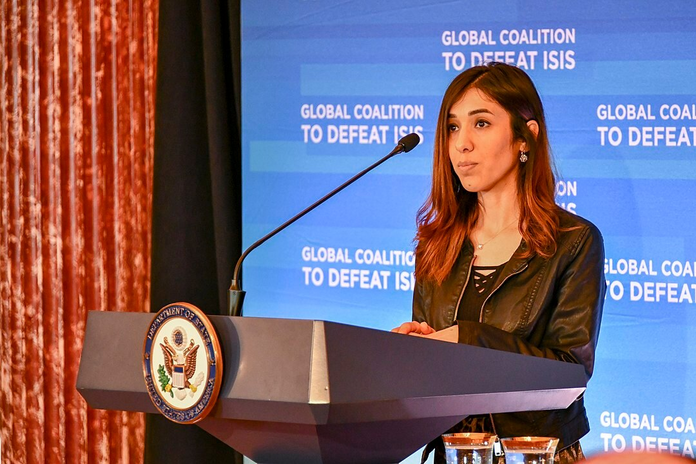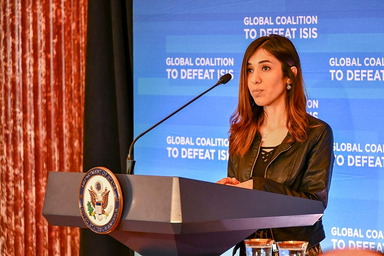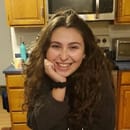In August 2014, the Islamic State carried out a genocide in Northern Iraq against Yazidis, an ethnic minority group, resulting in mass deaths, enslavement of women and widespread displacement.
Nadia Murad was one of the women who suffered from the sexual violence when her village in northern Iraq was attacked. 600 Yazidi men from her village were killed and the young women were taken as prisoners. She was 19 years old.
Murad managed to escape her captors and ended up in a refugee camp. Eventually Murad was offered the opportunity to move to Germany, where she currently resides. Since then, she has taken it upon herself to share her story in the hopes that communities vulnerable to genocide and sexual violence receive the resources they need to avoid attack.
On November 10, Murad delivered the Hanway Lecture at Loyola University Maryland sharing her story with those attending in-person or via livestream and answering questions from the audience.
“Dreams are a luxury not afforded to marginalize people like the Yazidis,” she said. “Instead of a hopeful future, my community was dealt nightmares, murder, enslavement, destruction and displacement.”
Murad’s lecture focused on the fact that attacks such as the one against the Yazidi people will continue unless at-risk communities are provided resources to protect themselves.
“Seven years have passed since ISIS genocide against Yazidis. Neither Iraqi national nor international trials have been held to bring perpetrators to justice for crimes of sexual violence and genocide,” Murad said.“Militants will continue to use ethnic cleansing and sexual violence as tactics of war unless we prove that they will be held accountable.”
Ady Weng, a sophomore government and politics and information sciences double major, watched the lecture from her dorm.
“I feel like we’re all kind of in the position where we feel like once actions are taken against the perpetrators of the crime, the story kind of ends there, and the lecture did a lot to kind of negate that,” Weng said.
Murad used her own story to tie into a greater message in her lecture — the idea that the world needs to change how justice is carried out.
“She reiterates how the Yazidis’ violence, it’s a cycle of violence against them, because other entities have failed to provide for their restoration and defense post violence,” Weng said. “And I think that that speaks a lot to the kind of justice that we need, as opposed to just the attribute of justice.”
Murad’s lecture also emphasized the fact that the best people to talk to in terms of providing help is the group of people who you aim to assist. Communities who are suffering know the resources they need in order to end the suffering and violence they face.
“Her presence, her story was really good about reiterating the fact that the victims are people and they deserve to have a say in the justice,” Weng said. “Especially women in marginalized groups, when they’re given resources and platforms, they’re the best advocates for the kind of justice that would do them well.”
In the end, Weng’s biggest takeaway from the lecture was that the world needs to do better.
“The victims aren’t just victims…giving to them isn’t just charity, but it’s a preventative form of justice that they can use to prevent indigneous from happening again,” she said.


